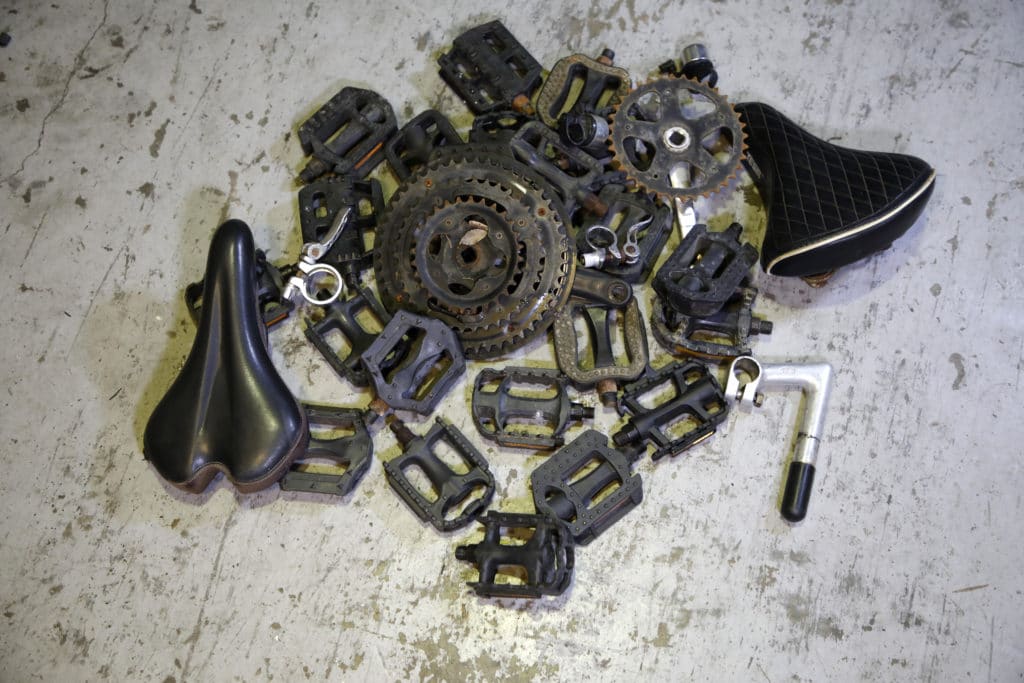Bikes and other personal transport vehicles (PTVs) are extraordinarily environmentally efficient machines. Every push of a pedal is pollution avoided. The fact that millions of Australians are increasingly choosing PTVs – such as bicycles, e-bikes, scooters, e-scooters and other things that don’t even have names yet (!) – is a great positive for the environment.
However, like every built machine, bikes and PTVs do have their own environmental footprint when looked at across their entire lifecycle from raw materials to “end of life”.
And, PTVs’ environmental footprint / impact grows as PTV usage continues to grow, as it has by 50% in the last two years to some 2 million rides purchased per year.
The challenge is, while ridership and PTV usage positively grows, that our society also needs to minimise the negative downsides like the potential for more waste-to-landfill from old rides at the end of their “first life”.
Additionally, an important trend to consider is the growing use of batteries to in part power PTVs. While battery power is making PTVs of all descriptions more accessible to more and different riders (and is the fastest growing proportion of all “bicycle” sales in Australia), batteries also have their own really specific environmental challenges.
At Revolve ReCYCLING, it’s our aim to be part of both encouraging greater ridership and stopping unnecessary ride-related waste going to landfill.

Revolve ReCYCLING will do that by:
- Aiming to recycle, reuse or redeploy 100% of the PTVs that we collect from riders;
- Providing cool, safe, high quality, branded and affordable redeployed bikes for riders to purchase;
- Training people in keeping bikes on the road and out of landfill for as long as possible;
- Giving away kids’ bikes for free to those who need them;
- Working to make our own practices as environmentally sustainable as possible (eg, active choices about collection methods/fuels/offsets, lighting and energy, procurement of second-hand tools and office goods);
- Donating cool, safe high quality and branded redeployed kids bikes to kids who need them, eg, what we call “bike equity”;
- Sharing ideas and information about minimising PTVs’ lifecycle environmental footprint with the “ride fraternity”;
- Researching and collaborating around new products – say art, jewellery or clothing – from old rides;
- Researching and collaborating around using recyclate from PTVs – say plastics – directly back into new rides – say as recycled content plastic bike frames;
- Partnering with various organisations – like Councils, schools, uni’s, site managers, sporting clubs and others – to hold “Bring Back Your Bike Days” to give riders recycling and reuse opportunities;
- Promoting product stewardship of PTVs to industry and public policy stakeholders, and;
- Promoting colleagues’ efforts for greater rider repair and maintenance of bikes to optimise their life spans.
The bottom line is we want to be active contributors to conversations and actions toward greater circularity of PTVs. As part of that, we’ll be posting info here, including a couple of cool papers from our sustainability friend, Eden Campbell, on related themes.

